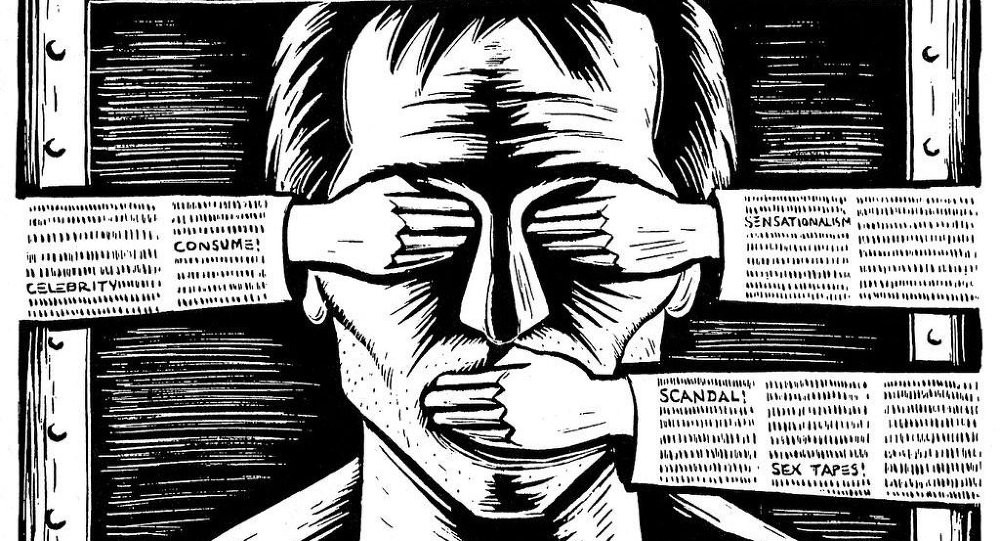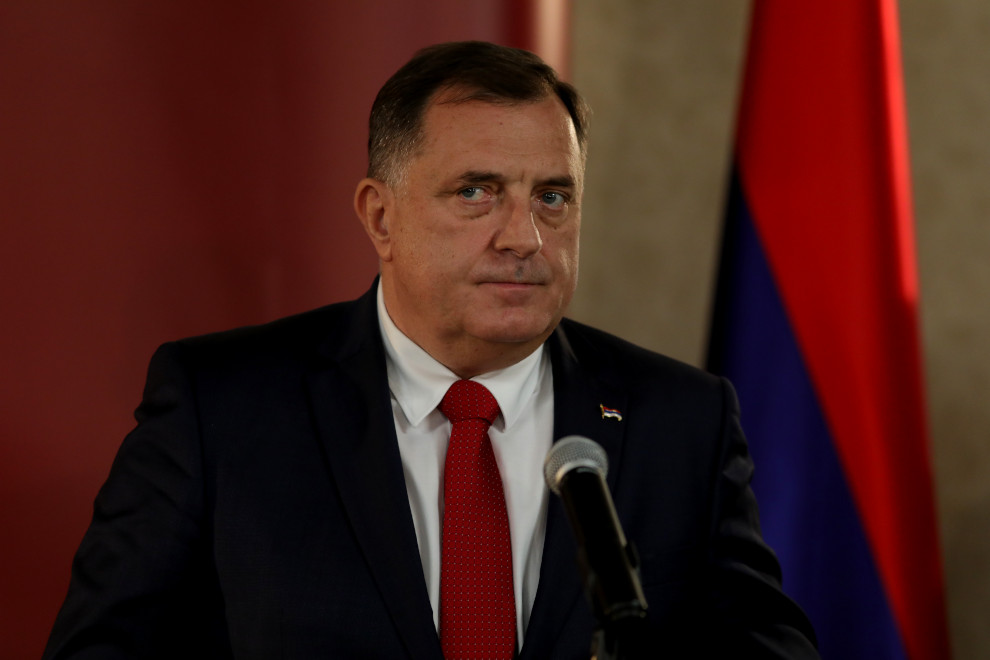Žurnal in English
CRIMINALIZATION OF SLANDER IN REPUBLIKA SRPSKA (1): Dodik's law for disciplining the media and citizens
If the draft is adopted, the judiciary should be among the first to prosecute Milorad Dodik for numerous insults uttered against journalists and domestic and international officials.

The Government of Republika Srpska adopted the Draft Law on Amendments to the Criminal Code of Republika Srpska, which introduces new criminal offences against honour and reputation, that is, the criminal offence of insult and slander. Fines for the above crimes will range from 5 to 100 thousand KM.
The main argument in the previous months of the authorities in Republika Srpska was that such legal solutions exist in the countries of the European Union and that BiH is only following these trends. If the judicial system in Bosnia and Herzegovina followed the practices and work of prosecutor's offices and courts in the European Union, this thesis might have some basis. But, at the moment, Bosnia and Herzegovina is the most corrupt country in the region, to which the judiciary contributes to a large extent. Comparing domestic and European prosecutor's offices, their work and decisions are completely unsustainable.
Dejan Lučka, lawyer and director of the Banja Luka Center for Human Rights, also writes about this in his analysis of whether BiH needs this kind of legal practice.
Due to controversial verdicts, poor prosecutorial work and frequent affairs in the judiciary, citizens do not trust the judicial authorities, because they believe that they are under the influence of another branch of government, parties, businessmen or someone else. The devaluation of the feeling that one can get a fair verdict in any procedure (civil, criminal or administrative) in BiH has led to the fact that fewer and fewer people believe that the judiciary is independent. Unfortunately, this is not only the feeling of citizens in BiH, but also the result of many pieces of research and analyses (such as those from Transparency International, OSCE, USAID, etc.), but is also a fact that is hard to deny, Lučka believes:
- We can only imagine what kind of situations we would come to if someone in the government system asked the prosecutor to prosecute a certain journalist or other citizens for defamation, because of writing that was aimed at criticising the government, its actions and uncovering malfeasance. I have no doubt, even though human rights standards dictate otherwise, that there would be room for a journalist/citizen to be convicted of defamation and put behind bars as an example - he states in his analysis.
Lučka explains in detail what the judicial practice is in the European Union, and states that the International Human Rights Standards are based on the foundation that states that defamation within the framework of the criminal law represents a serious danger to freedom of expression, mostly because of the penalties that can be imposed:
- Instruments for the protection of human rights, such as the Universal Declaration of Human Rights, the International Covenant on Civil and Political Rights and the Convention for the Protection of Human Rights and Fundamental Freedoms (European Convention) stipulate that everyone has the right to freedom of expression.
He states that there are limitations, but that they too must be strictly established by law.

Laws about lies and slander are passed to improve the atmosphere in which we find ourselves. These laws will be rigorous - announced Milorad Dodik in November last year:
- It is not a problem that you tell the truth and everyone should be allowed to tell the truth, but this amount of lies, subterfuge and fabrication in the public space has totally disgusted and mentally burdened a significant part of the population and it is ultimately something that came from the outside. But on that side, they have laws that forbid it, and they didn't let us introduce it a few years ago, we will do it this year, we will do it very soon, let whoever wants protest - he threatened. Ironically, if the draft is adopted, the judiciary should be among the first to prosecute him for numerous insults uttered against journalists and domestic and international officials.
Restrictions exist in the EU, Anida Sokol, a researcher at the Mediacenter, agrees, but they are allowed for national security, public order, reputation and the like. The question arises as to who is the one who will assess what is defined as public interest and national security in Republika Srpska and Bosnia and Herzegovina. Journalists in previous years were in situations when even an excessively high telephone bill in one ministry was declared national security, so the institutions did not want to provide information about who made it.
Anida Sokol dealt extensively with the topic of the criminalization of defamation in her texts. Sbe says that when Milorad Dodik announced a new set of laws in November last year that includes the criminalization of defamation, the media community thought that this was impossible in the 21st century. Especially considering that defamation was decriminalised more than 20 years ago:
- All the recommendations at the level of the UN, the international community, and all the conventions point to the fact that it is necessary for those countries where defamation is still criminalised to decriminalise it. Both the practice and recommendations of the European Court of Human Rights dictate that prison terms are never justified in defamation cases. And this is what Milorad Dodik and Milan Tegeltija used to justify themselves when they stated that in some European countries defamation is still part of criminal laws. And if it is part of the criminal laws, a prison sentence is never justified - she says for Žurnal.
According to Dejan Lučka, in the Criminal Code of Republika Srpska from 2000, defamation was defined as a criminal offence in the part of the code that defined crimes against honour and reputation, and it protected the honour and reputation of citizens. According to the law at the time, a fine or a prison sentence of up to six months was punishable for anyone who brings forward, that is, publicly announces for the first time, or conveys or spreads, something untrue that may harm another's honour or reputation:
- A more serious form of this criminal offence existed if the defamation was committed through the press, radio, television or other means of public information, or at a public meeting. In that case, the perpetrator would be fined or imprisoned for up to one year. However, if what is untruthfully stated or transmitted was of such importance that it led to serious consequences for the injured party, the perpetrator could be sentenced to up to two years in prison. These provisions were deleted already the following year, as the Law on protection against defamation was supposed to come into force - says Lučka.

The draft foresees that defamation will be punished with money, but the level of the prescribed punishments testifies that it is a complete suppression of expression and media freedom in the RS.
According to Anida Sokol, an article specifying that whoever offends another will be punished with a huge fine will have a significant impact on journalists:
- Especially in Republika Srpska, where there is a high level of self-censorship among journalists. Research shows that they self-censor precisely because of the fear that this will lead to consequences. Although defamation has been decriminalised, these disputes are used to influence freedom of expression. We also have a huge number of politicians who sue journalists. Certain media are constantly getting lawsuits, and just imagine how they will be used because the laws of those who sue are on the government's side. They protect people in power, not journalists. Also, this can affect citizens in the RS, because if you say anything on a social network, for example, you may be prosecuted and punished.
The Steering Committee of BH Journalists warns that the process of criminalising defamation initiated by the authorities in Republika Srpska represents an open stifling of media freedom and independent, investigative journalism in that entity. The fact that the authorities of the RS have decided, through changes to the existing law, to determine even the amount of fines for defamation, and that the stipulated fines are significantly higher than the amounts that the courts in BiH have so far decided on defamation lawsuits, is nothing more than an institutional attempt at intimidation journalists and the media, especially those who write critically about the government's actions, the suppression of media freedom and the introduction of (self) censorship:
- We emphasise that certain politicians from the Federation of Bosnia and Herzegovina also support the criminalization of defamation and it is to be expected that if Republika Srpska adopts the aforementioned amendments to the Criminal Code, the same will happen in the Federation of Bosnia and Herzegovina. We remind you once again that in its report for 2022, the European Commission asked the BiH authorities to guarantee freedom of expression and the media and the protection of journalists as one of the fundamental conditions on the way to membership in the European Union.
The draft law now goes into public debate, which means there are still opportunities to stop the re-criminalization of defamation. Otherwise, it is quite clear that in these cases the authorities will be left with a huge scope for abuses, persecution of dissenters and disciplining journalists and citizens.
(zurnal.info)




